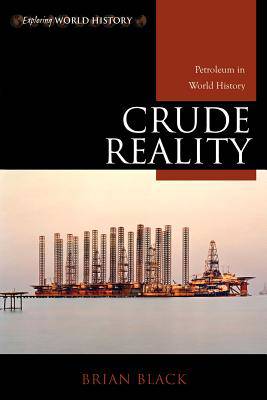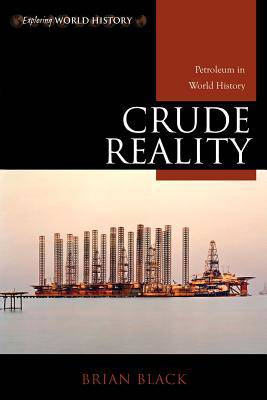
- Afhalen na 1 uur in een winkel met voorraad
- Gratis thuislevering in België vanaf € 30
- Ruim aanbod met 7 miljoen producten
- Afhalen na 1 uur in een winkel met voorraad
- Gratis thuislevering in België vanaf € 30
- Ruim aanbod met 7 miljoen producten
Zoeken
€ 78,45
+ 156 punten
Uitvoering
Omschrijving
This concise, accessible introduction to the history of oil tells the story of how petroleum shaped human life since it was first discovered leaking inconspicuously from the soil. Leading environmental history specialist Brian C. Black connects the subsequent exploitation of petroleum to patterns in world history while tracing the intricate links between energy and people after 1850. For a century, human dependence on petroleum caused little discomfort as we enjoyed the heyday of cheap crude-a glorious episode of energy gluttony that was destined to end. Today, we see the disastrous results of environmental degradation, political instability, and world economic disparity in the waning years of a petroleum-powered civilization-lessons rooted in the finite nature of oil. This "crude reality" becomes tragic when we measure our overwhelming reliance on this geological ooze. Considering the nature of oil itself as well as the specifics of humans' remarkable relationship with it, Crude Reality reveals our modern conundrum and then suggests the challenges of our future without oil. It is this essential context, the author argues, that will prepare us for our energy transition. Black brings to this book a global perspective and a wide-ranging technical knowledge presented specifically for general readers, making its scope much broader than any other survey. Written by a major scholar on the history of petroleum, it is an essential contribution to environmental history and the rapidly emerging field of energy history.
Specificaties
Betrokkenen
- Auteur(s):
- Uitgeverij:
Inhoud
- Aantal bladzijden:
- 288
- Taal:
- Engels
- Reeks:
Eigenschappen
- Productcode (EAN):
- 9780742556546
- Verschijningsdatum:
- 22/03/2012
- Uitvoering:
- Hardcover
- Formaat:
- Genaaid
- Afmetingen:
- 163 mm x 231 mm
- Gewicht:
- 580 g

Alleen bij Standaard Boekhandel
+ 156 punten op je klantenkaart van Standaard Boekhandel
Beoordelingen
We publiceren alleen reviews die voldoen aan de voorwaarden voor reviews. Bekijk onze voorwaarden voor reviews.











